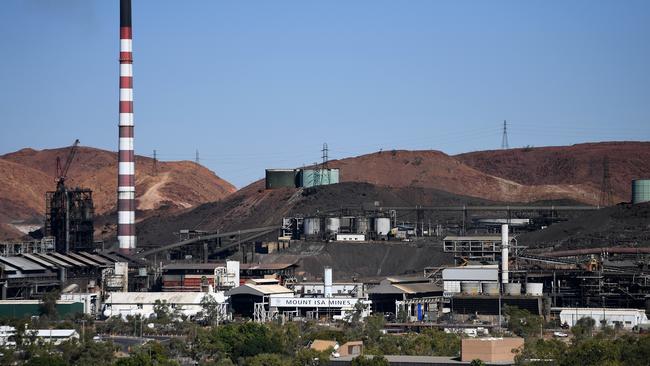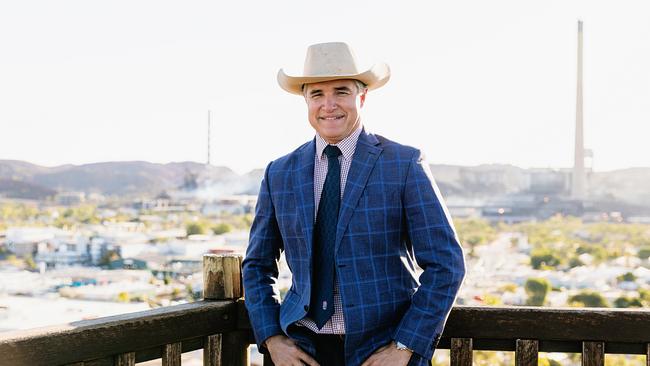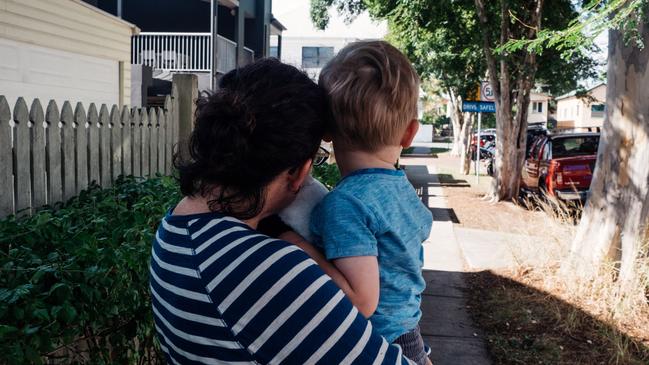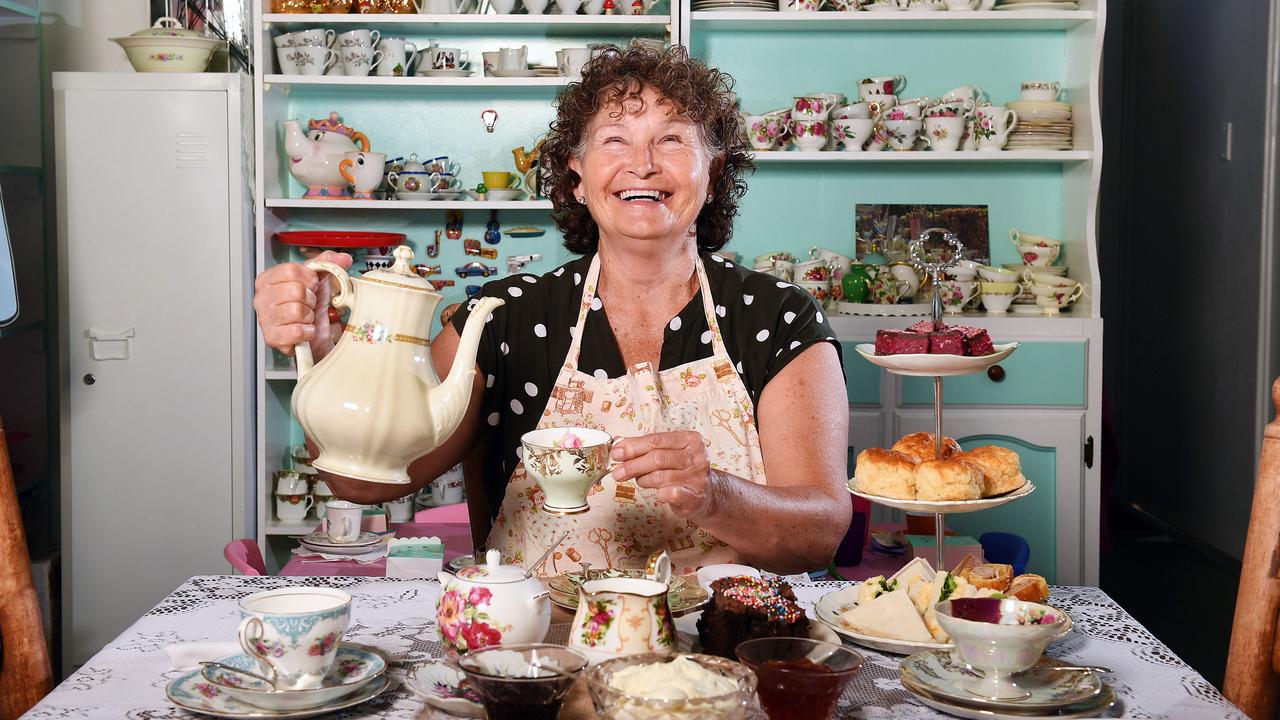FIFO review: Robbie Katter calls for parliamentary inquiry
Fresh calls for an inquiry into fly-in, fly-out employees has come as the state government is primed to release a review into the first legislation banning 100 per cent FIFO workforces.

Townsville
Don't miss out on the headlines from Townsville. Followed categories will be added to My News.
FRESH calls for an inquiry into fly-in, fly-out employees has come as the state government is primed to release a review into the first legislation banning 100 per cent FIFO workforces.
A review into the Strong and Sustainable Resource Communities Act 2017 has found since the legislation was introduced, the percentage of local workers increased on large resource projects, and there were no complaints regarding discrimination of locals received by the Queensland Human Rights Commission.
This comes as Katter’s Australian Party leader Robbie Katter called for an urgent parliamentary inquiry into the impact of fly-in, fly-out (FIFO) workers on regional communities, saying the legislation was “practically useless”.
However, Deputy Premier and State Development Minister Steven Miles said the review found the legislation was on track to create more local jobs and economic growth in regional communities.
Mr Miles said the purpose of the legislation was to ensure regional communities benefited.
“The review focused on assessing the key elements of the Act – prohibition of 100 per cent FIFO workforces and fair job access for locals,” Mr Miles said.
“It found the legislative ban on 100 per cent FIFO workforces has so far been successfully applied to 71 large resource projects.
“Stakeholders have reported that positive benefits are already flowing to local communities thanks to the 100 per cent FIFO prohibition and there have been no complaints of employment discrimination.”

The review into the legislation came up with four recommendations; to retain the act; to review the effectiveness of the social impact assessment provisions in the act as it was deemed too soon to do this effectively; to implement collaborative data collection; and improve awareness and understanding of the anti-discrimination provisions by the resource communities.
Resources Minister Scott Stewart said the review was based on extensive engagement with stakeholders directly affected by the legislation.
“There are now 297 communities protected by the legislation,” Mr Stewart said.
“As part of the review, stakeholders reported the act sets out a clear legislative framework and does not impose significant costs on the resource industry.”
Mr Katter called for the inquiry following Glencore’s decision to move to a week-on, week-off roster instead of the four-on, four-off currently used at the Mount Isa Mine.
The Traeger MP said the change could negatively affect the region’s economy, with more people opting to be FIFO workers.
“Now is the time to establish a Parliamentary inquiry into fly-in, fly-out employment. It has been over a decade since anyone bothered to look thoroughly into the impacts of FIFO work,” Mr Katter said.
“You can expect to see school enrolments stall and instability among the small business community.
“Traditionally, Mount Isa Mines has drawn workers to settle and raise families in our community which creates a positive ripple effect for our local economy and social engagement.”
Mr Katter said the current legislation was “practically useless”.
“We urgently need an inquiry to reconsider the current legislation and seek out a more practical solution that benefits both the mining sector and the communities FIFO work takes place in,” Mr Katter said.
Roster change could be ‘blight on region’
GLENCORE’S decision to move to a week-on, week-off roster at Mount Isa Mines puts commercial interests in front of the regional city, MP Robbie Katter has said.
The major mining company has announced it will move its primary workforce roster at the Mount Isa Copper Operations to the George Fisher Mine.
This will implement a seven days on, seven days off roster, which has been in place at George Fisher Mine for a number of years.
A spokeswoman for the company said the roster had “improved productivity” and supported a better work-life balance for the workforce.
She said the workers were currently on a four days on, four days off roster.
However, Traeger MP Robbie Katter said this could tempt more workers to be fly-in, fly-out or drive-in, drive-out employees.
“This increase in FIFO, already a blight on our region, will impact every corner of our community from the local businesses to school enrolment numbers to funding for local services including our hospital and so on,” Mr Katter said.

“The practice of FIFO was declared a ‘cancer of the bush’ during the Federal Parliamentary Inquiry into it chaired by Tony Windsor a decade ago.
“Since this time, the prevalence of it has only increased and locally it has been perpetually destructive on Mount Isa and Cloncurry.”
Mr Katter said the biggest benefit to any town in a mining area was having the mine wages spent in the local towns.
“A tiny fraction of the royalties being generated by our region’s mines make it back to the area, otherwise they all go to Brisbane,” he said.
“So what is the point of having or promoting any mining development in the region if the jobs all go to Townsville or Brisbane?
“This latest move by Glencore has to be called out for putting their commercial interests ahead of that of the town.”
The Glencore spokeswoman said the alignment of rosters would also allow workers to transfer between the two sires more easily, providing greater operational flexibility and opportunities for the long-term economic sustainability of its business.
“Feedback is being sought from affected personnel about the proposal over the coming weeks, with a formal decision to be made in mid-November,” the spokeswoman said.
“We recognise any change to rosters may cause some disruption for workers and their families, and concern in the community.
“We want to reassure people that we remain committed to operating a safe, responsible and efficient business that continues to support the community.”
Townsville’s social housing shame
TOWNSVILLE’S social housing register is growing at an alarming rate, with more than 2100 families waiting for accommodation in the city.
This is more than a 170 per cent increase in more than three years. Just 793 families were waiting for housing in 2017.
The Queensland Council of Social Services say the number of families assessed as having a very high or high need for housing has also exploded from 436 in 2017 to 1888 in 2021.
The number of families with a single parent on the register has also increased from 179 to 755 in the same period.

Townsville has been experiencing a compounding issue with social housing, as rental vacancies dropped down to as low as 0.2 per cent amid the pandemic.
Multiple families have been displaced, with people snapping up homes in a move from interstate.
This has put increased pressure on social housing services in the region.
Earlier this year, QCOSS called on the state government to invest $278m in the 2021-22 budget into social housing across the state. At that stage, there were 1800 families in Townsville on the social housing register and 1116 in need of urgent housing.
QCOSS CEO Aimee McVeigh will be in Townsville on Friday to meet with community service providers in the region and discuss plans to improve the wellbeing and resilience of those who rely on low incomes and support from community organisations to get by.
“Queensland is facing ongoing entrenched challenges in 2021. The pandemic has shown us just how important a liveable income and secure home is to the health of everyone in the community,” Ms McVeigh said.
“While we did see a commendable $1.9 billion invested by the Queensland government into social housing in this year’s budget, it’s clear this won’t be enough to address the exponentially growing crisis on our hands.
“We need all levels of government – Commonwealth, state and council – to come together and solve this crisis collectively.
“The magnitude of the crisis our state is in requires a marathon, which must be run together by all levels of government.

“The Australian Government especially must acknowledge its place in addressing the housing needs of Queenslanders.”
As part of her visit, Ms McVeigh will also meet with members of parliament.
Earlier this year, Communities Minister Leeanne Enoch said over the past four years 229 new social housing homes had been commissioned in the North Queensland region.
The Minister said 28 new social housing homes were expected to start construction in Townsville by December.
More Coverage
Originally published as FIFO review: Robbie Katter calls for parliamentary inquiry





